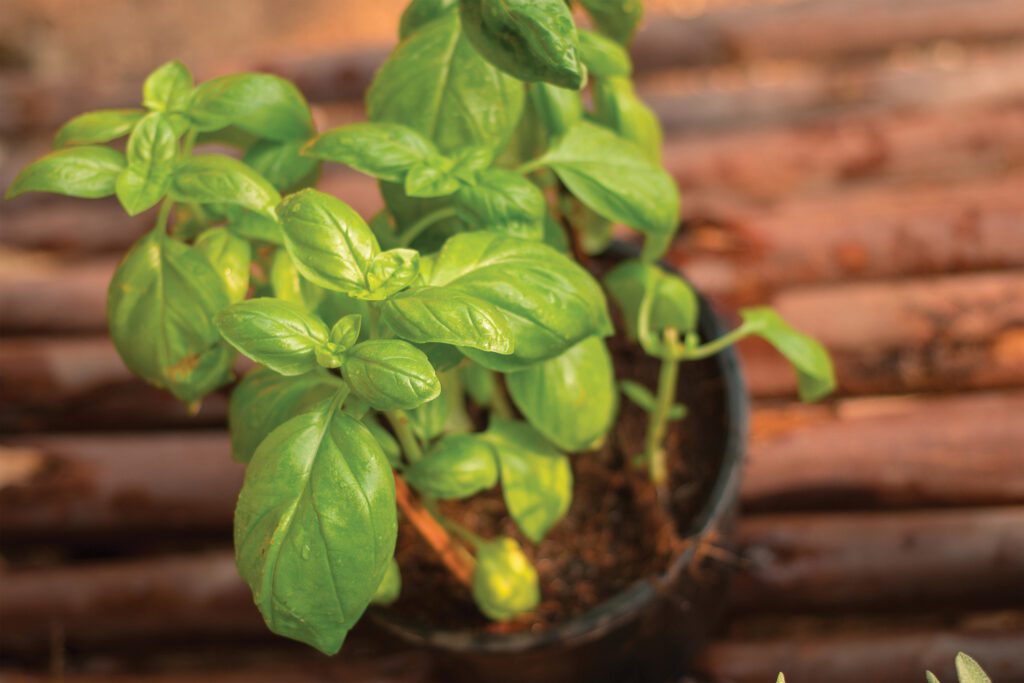The Benefits and Uses
Lush, aromatic, and hearty, this minty “King of Herbs” packs plenty of health benefits beyond its amazing flavor and sturdiness.
Basil is a member of the mint family and behaves very similarly – it grows as a vining plant, is usually very hearty, and tends to spread quickly. If planting basil in a pot, avoid partnering it with anything else that needs room to spread (mint, oregano, etc.).
Benefits of Basil
Antiseptic properties: Basil’s essential oil contains several chemical compounds that feature antibacterial and antifungal properties. Due to these functional elements, it works great for skincare. Its essential oil can be used to treat blemishes, wounds, or other skin maladies.
Anti-inflammatory properties: Basil contains the chemical compound eugenol, which contributes to the herb’s strong aroma. Similar to over the counter pain relievers, when ingested the eugenol works to block pain causing enzymes which qualifies basil as an anti-inflammatory food.
Insect Repellant: The strong clove, anise, and eugenol scents in basil’s leaves work as a natural insect deterrent.


Growing basil around your outdoor area, or simply applying its essential oil to your skin can help reduce insect interference. If that doesn’t work, and you end up with an insect bite anyway, basil leaves or oil can be applied to reduce the inflammation of the bite.
Excellent Source of Vitamins A, K, Iron, and Magnesium: Basil contains vitamin A and magnesium, both of which are great for circulation and cardiovascular health as they deter cholesterol oxidation (which causes dangerous blockage on artery walls) and help muscles and vessels to relax. The herb also has a ton of vitamin K – great for healthy blood clotting – and iron – which carries oxygen from your lungs to the rest of your body.
Tips for Enjoying Basil
- Use basil in a traditional pesto, which is simply basil leaves, toasted pine nuts, and parmesan cheese pureed together with olive oil.
- To save basil, chop, add to ice tray, and cover with olive oil. Pop a frozen cube or two into a skillet each time you need a base for a Thai, Indian, or Italian dish.
- Boil leaves in hot water for an anti-inflammatory tea, or apply basil water to blemish-prone areas, bug bites, or cuts to harness its antiseptic properties.

